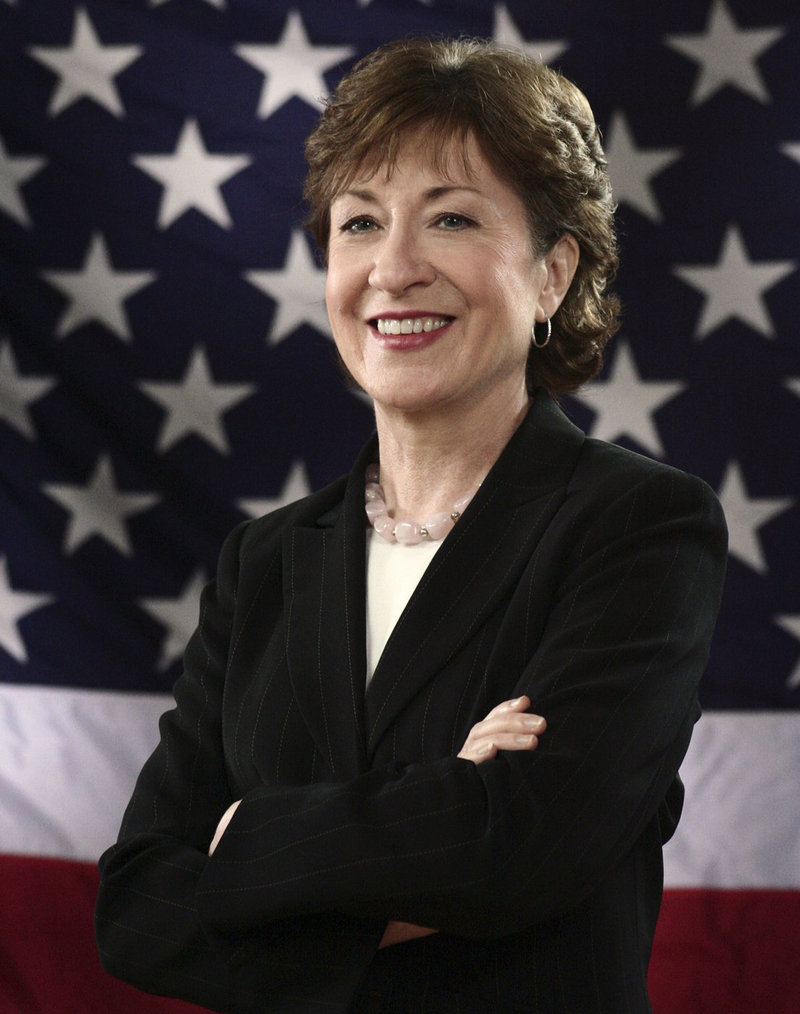WASHINGTON – A bill co-authored by Sen. Susan Collins of Maine is sparking debate about whether rule changes sought by powerful, independent regulatory bodies should face the same scrutiny as those proposed by agencies controlled by the White House.
For decades, presidents from both parties have required most agencies directly under their purview to do detailed cost-benefit analyses and other reviews of proposed rules to gauge their impact on businesses or the regulated community.
A bill pending in the Senate would extend that authority to “independent regulatory agencies,” including such powerful entities as the Securities and Exchange Commission, the Federal Communications Commission and the Federal Deposit Insurance Corp.
But while Collins and her bipartisan group of co-authors describe the measure as a common-sense step to reduce red tape on businesses, critics view it as opening the door for politics and big-money interests to undermine the independence of important regulatory agencies. Critics say the timing is particularly dangerous given the battle between regulators and Wall Street to reform risky financial practices that contributed to the global economic crash.
“This legislation would give Wall Street lobbyists another powerful set of tools to delay and derail the implementation of financial safeguards that are needed to protect our economy,” Americans for Financial Reform, a progressive advocacy group, wrote in a letter to senators dated Sept. 7.
The bill would not enable the White House to halt or overrule major new rules proposed for, say, the financial sector or the communications industry. But it would allow the White House’s Office of Information and Regulatory Affairs to require a detailed — and potentially time-consuming — cost-benefit analysis of “major rules” that would have an economic impact of $100 million or more.
Collins is joined on the bill by Sen. Rob Portman, an Ohio Republican, and Sen. Mark Warner, a moderate Democrat and former Virginia governor.
In an interview, Collins said she frequently hears from business owners in Maine about the need to reduce their regulatory burden. She also pointed to a Government Accountability Office report that found that none of the 47 “major rules” adopted by independent regulatory agencies from 2009 to 2011 received full cost-benefit analyses.
“That concerns me because these (independent) regulatory agencies could have just as much of an impact on our economy, job growth and economic growth as executive agencies that are required to conduct cost-benefit analyses,” Collins said.
She said the bill doesn’t threaten the agencies’ independence because it wouldn’t allow the White House to stop their implementation, regardless of the results of the review.
The consumer advocacy organization Public Citizen strongly disagrees. And opposition from Public Citizen, Americans for Financial Reform and other groups may have been a factor in Connecticut Sen. Joseph Lieberman’s decision Wednesday to delay hearings potentially scheduled for next week until November.
“Right now, the agencies are independent for a reason, according to Congress,” said Amit Narang, regulatory policy advocate for Public Citizen. “And this changes things to a great degree.”
Narang noted that Wall Street has already managed to delay implementation of various aspects of the financial reform package known as Dodd-Frank, passed in 2008 after the economic collapse. The SEC, for instance, lost a court battle last year involving corporate boards.
Narang predicted that the bill would cause long delays as the cost-benefit analyses are done and then reviewed by the White House. Should the agency decide to implement the rules over White House objections, Narang said, those objections could become legal fodder in a court challenge.
As part of its media campaign against the bill, Public Citizen often cites Collins’ support of the Dodd-Frank Wall Street reform bill — one of only three Republicans to do so — and past testimony on White House review of independent agencies’ proposed rules.
“That recommendation concerns me greatly, because the whole reason that Congress creates independent regulatory agencies is to insulate them from administration policies, whether it’s a Democratic or Republican administration,” Collins said in a 2009 nomination hearing for the would-be head of the Office of Information and Regulatory Affairs.
On Wednesday, Collins said she still feels that way. It wouldn’t make sense to weaken Dodd-Frank after she invested so much time and political capital in it, she said.
“I would not support a bill that would allow (the Office of Information and Regulatory Affairs) to block the rules of independent regulatory agencies,” she said. “So I believe the bill we came up with strikes the right balance.”
Washington Bureau Chief Kevin Miller can be contacted at 317-6256 or at:
kmiller@mainetoday.com
On Twitter: @KevinMillerDC
Send questions/comments to the editors.




Comments are no longer available on this story